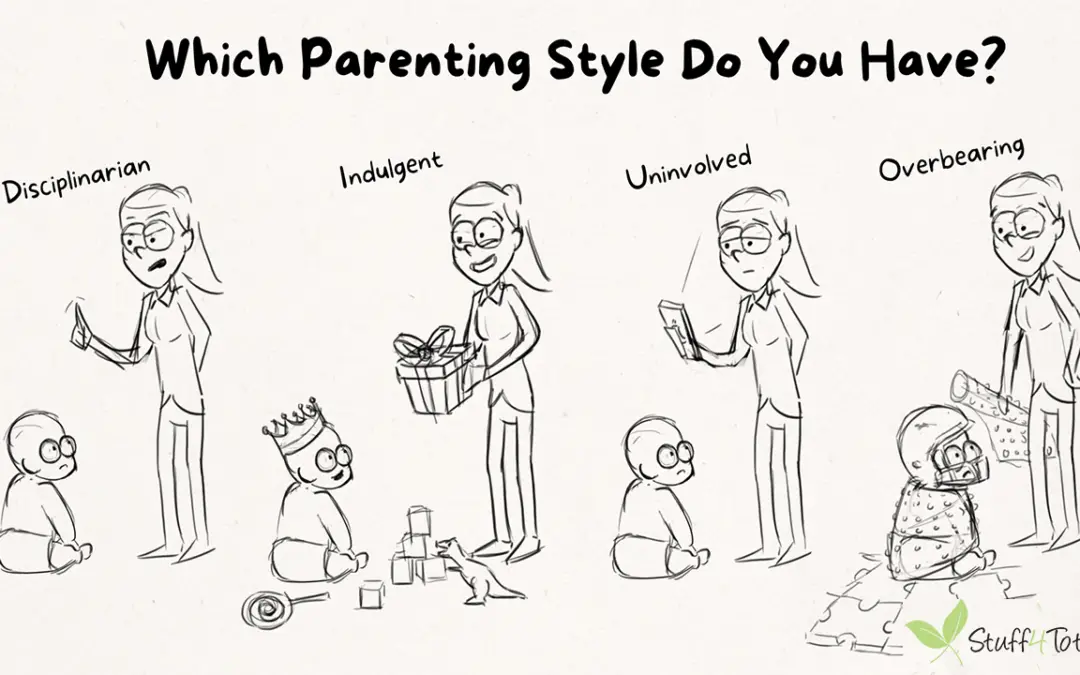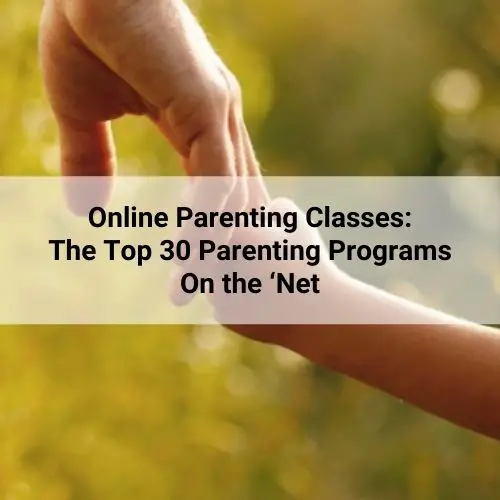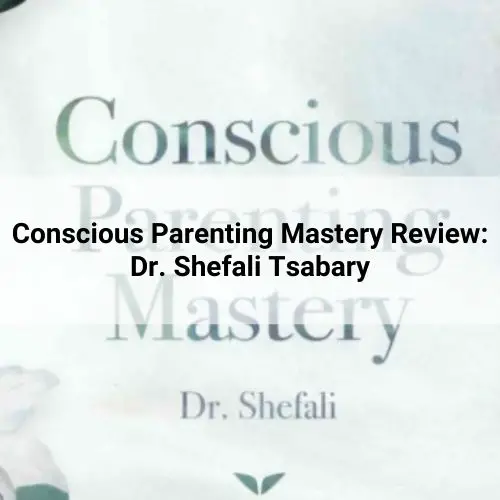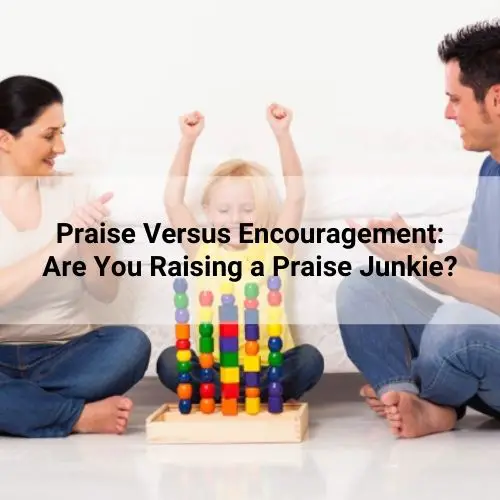There are different ways that parents raise their children. Often people are unaware of their parenting style and act unconsciously.
In the 1960s, psychologist Diana Baumrind conducted a study on more than 100 preschool-age children.
She defined four parenting styles, known today, as the Baumrind Styles. These are:
- Authoritarian or Disciplinarian.
- Permissive (or Indulgent).
- Uninvolved (or Neglectful).
- Authoritative.
Growing your awareness of parenting styles can help you become a better parent. Check out each parenting style and see which one resonates with you the most!
If you are unsure about parenting, you may also choose to take a parenting class.

photo courtesy of 4to40.com
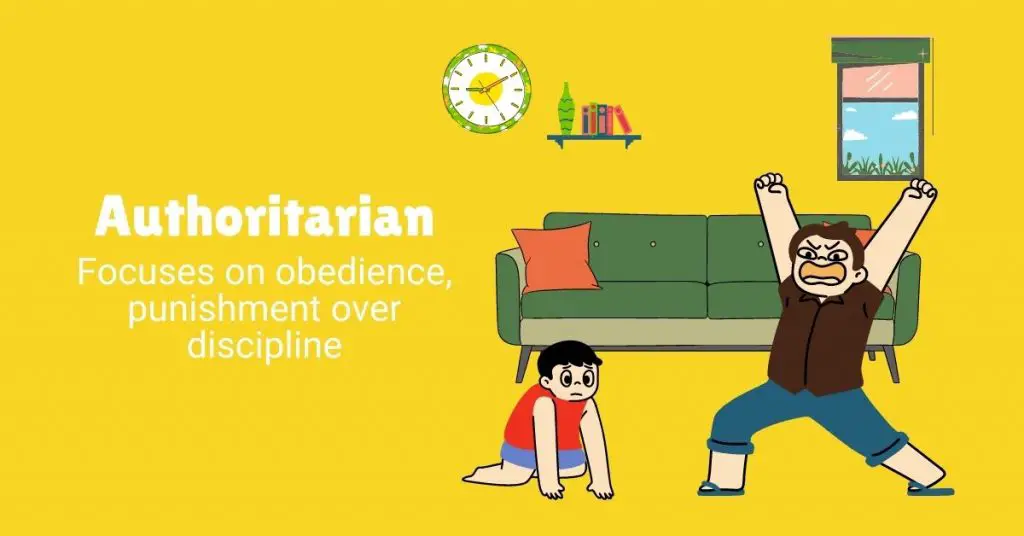
Table of Contents
#1 Authoritarian a.k.a. Disciplinarian Parenting
This strict discipline style allows little room for negotiation.
Demands and expectations are high.
Flexibility is limited.
Punishment accompanies mistakes or slip ups.
Most of the time, communication is one-way. From parent to child.
Usually, rules aren’t explained.
Feedback is not given.
Authoritarian parents are typically less nurturing.
Children under this parenting style have a higher risk of developing self-esteem problems because their opinions aren’t valued.
They are also more likely to adopt bullying, aggressive behaviors outside the home.
While Authoritarian parenting can sometimes make life easier in the short-term through strict obedience and compliance with the rules, in the long-term, the negative consequences outweigh any short-term benefits.
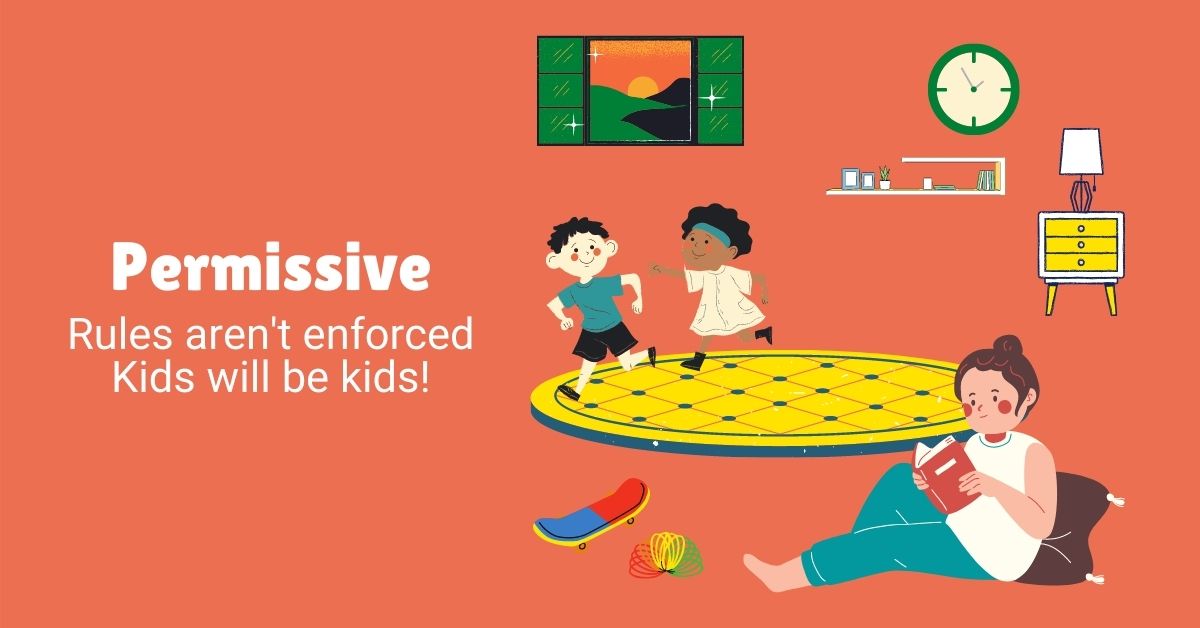
#2 Permissive a.k.a Indulgent Parenting
Permissive parents mostly let their children do what they want.
They offer limited guidance or direction.
They are more like friends than parents.
There are limited or no rules.
Communication is open but mostly, children are left to figure out problems on their own.
Permissive parents are typically warm and nurturing.
Expectations are minimal or not set at all.
Children under this parenting style tend to grow up without a strong sense of self-discipline due to the lack of expectations by their parents.
They may also be less academically motivated and struggle with problem-solving and decision-making.
Permissive parents also have few requirements for mature behavior, so their children may fall short on social skills.
They may be good at interpersonal communication, but they may lack important skills such as sharing and self-discipline.

#3 Uninvolved a.k.a Neglectful Parenting
Uninvolved parents generally stay out of their children’s way.
Some parents may take on this parenting style consciously while others are simply less interested or unsure of what to do.
An uninvolved parent lets a child mostly do what he wants, probably out of a lack of information or caring.
Communication is limited.
Children find little nurturing from their parents.
There are few or no expectations of children.
Children of neglectful parents tend to rank low in happiness and self-regulation.
It’s most likely they will experience problems with authority and tend to perform poorly in terms of academics.
In general, children under this parenting style fare poorly in almost every aspect of life.
They tend to have deficits in cognition, attachment, emotional skills, and social skills.
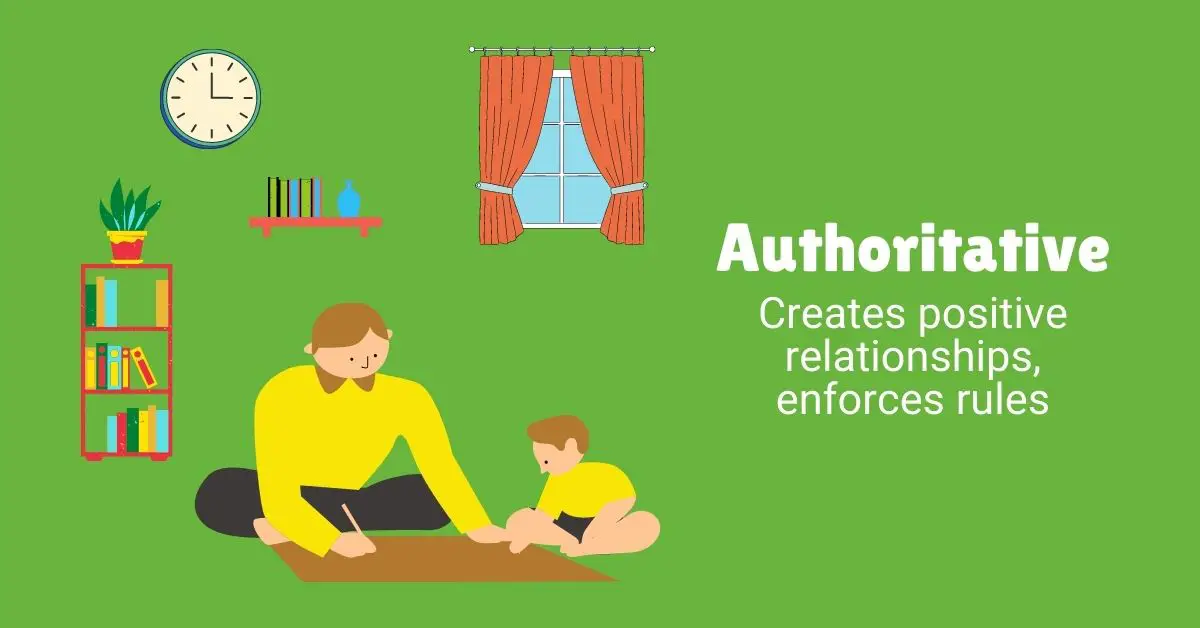
#4 Authoritative Parenting
Authoritative differs from Authoritarian in that it is firm but fair.
Communication is two-way, and it is a more mature and deeper relationship.
Children with authoritative parents tend to be self-disciplined and think for themselves. Disciplinary rules are clear and the reasons behind them are explained.
Communication is frequent and appropriate to the child’s level of understanding.
Authoritative parents are reasonable and nurturing.
Expectations and goals are high but stated clearly and also tend to be flexible. Children may have input into goals.
Parents with this style are able to adjust and adapt their approach depending on the situation, their child’s needs, and other factors that may be present.
Discipline takes into account all variables like a child’s behavior, the situation, and so forth.
Authoritative Parenting is the most difficult parenting style to implement. It requires mature thought and conscious effort. However, it reaps rewards in the long term.
It’s most likely that children under this parenting style will become responsible adults who are comfortable in expressing their opinions, self-confident about their abilities, have good social skills and have good control of their emotions.
Children of Authoritative parents tend to be more capable, happy, and successful.
On top of the four Baumrind Styles, we think there is one more parenting style that is characteristic of many parents today.
Are you looking for educational toys? Click here to check it out on Amazon.
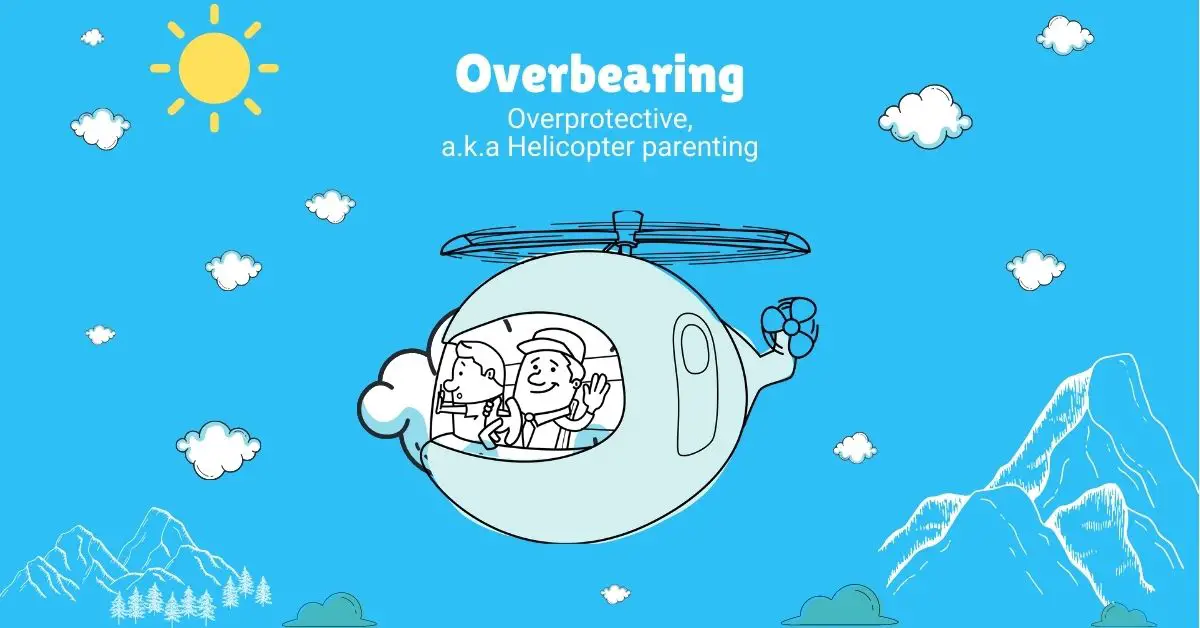
#5 Overbearing Parenting a.k.a Helicopter Parenting
The overbearing parent wants to protect their children from hurt, pain, harm, unhappiness, bad experiences, rejection, failure, and disappointments.
Well, don’t we all.
But overbearing parents are overly protective.
They cater to the child’s every need.
Solving every problem they have.
Doing their chores for them.
Teaching their teachers.
At the same time, they enforce rules with firm discipline.
This parenting style will frequently encourage a child to lie. When demands are too much, the first thing a child will think of is to lie so as to avoid getting in trouble.
Since overbearing parents rescue their child too quickly, the child’s opportunity to navigate hardships and solve problems on their own is removed. This hinders them from becoming competent adults.
Children under this parenting style may struggle with low self-esteem and self-worth, and may lack the resilience and confidence that are essential to face the world.
Overbearing Parents may also be known as Tiger Parents. While their children may, on the surface, appear to be high achievers, deep down they are often stressed and anxious.
There’s no doubt that we want the best for our children.
A child’s future is definitely in his or her parent’s hands.
This signifies the importance of adopting the best parenting style for your situation all the more.
We sincerely hope that our article on the 5 Parenting Styles helps you to determine your parenting style and become a better parent as a result.
We’ve also created a YouTube video of this article – check it out below!
We all love and care for our children.
We want the best for them.
And we hate to see them fall down and hurt themselves.
However, we need to know when to cut them a bit of slack. Otherwise, they will never grow into independent little human beings, adults in the making.
Be mindful of how you treat your children using Positive Parenting or Conscious Parenting techniques. It may be hard to break the habit at first, but it is worth taking on the challenge.
So, which of the 5 parenting styles do you have?
Or would you have a parenting style that you call your own?
We’d love to hear from you! Let us know in the comments below.
Related articles you might also enjoy:

Michael Oliver
Father of two lovely and special children. I'm an engineer (electrical) by trade and have worked at many a blue chip organization in the past. From Ford Motor Company to Airbus to Wyeth Pharmaceuticals to the UK National Health Service I've had a pretty diverse working life. After completing my MBA I wanted to break away from the corporate 'cubicle' so I founded Stuff4Tots as a means of being at home for my family and creating a future for us all.
Now as CEO of Stuff4Tots I bring together my expertise as a parent, a husband and a professional to serve fellow parents providing useful and relevant information and products to new families.
